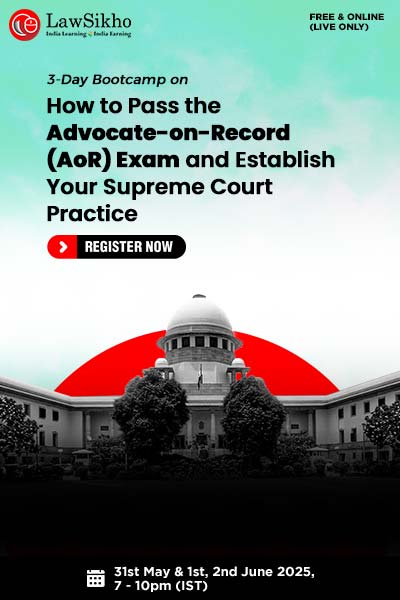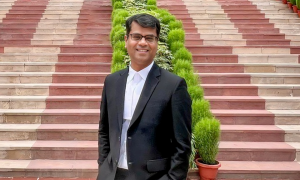This interview has been published by Anshi Mudgal and The SuperLawyer Team

What initially inspired you to pursue a career in law?
Law has always intrigued me because of its power to shape businesses, resolve disputes, and create order in an otherwise complex world. While I did not have a predetermined path toward law, I was drawn to its logical reasoning, problem-solving, and impact on society. As I began to explore the legal field, I was drawn to the idea of working within a law firm environment, where I could help clients navigate complex legal challenges, whether in business, litigation, or personal matters. The opportunity to collaborate with skilled professionals and offer practical, strategic solutions to clients was something that truly inspired me. Ultimately, I saw a career in law as a way to apply my skills in critical thinking and problem-solving to advocate for clients and create lasting, positive outcomes. Over time, I developed a keen interest in commercial and financial laws, which eventually led me to specialize in insolvency and restructuring.
What motivated you to pursue an LLM (Professional) in Banking and Financial Studies from NLU Delhi?
After completing my law degree and practicing for a few years, I understood that it is crucial for legal professionals to stay ahead of the curve, and hence I wanted to deepen my understanding of banking, securities, insolvency and investment laws. The LLM (Pro.) in Banking and Financial Studies at NLU Delhi provided a strong foundation in areas like banking and finance, securities and investment laws, arbitration, insolvency and financial restructuring—topics that are highly relevant in today’s economic environment. This specialization has been instrumental in my practice, particularly where financial acumen is as critical as legal expertise.
What were some key learning experiences in the early years of your career?
The initial years of practice were a mix of excitement and steep learning curves. I quickly realized the importance of building strong client relationships. At first, I focused heavily on legal research and analysis, but I learned that a successful practice also requires understanding clients’ needs, building trust, and communicating complex legal issues in a way that is clear and actionable for them. Another key experience was learning to manage multiple cases and deadlines simultaneously while maintaining attention to detail. I also had the opportunity to work closely with senior attorneys, where I learned the value of mentorship, strategic thinking, and how to approach complex legal problems creatively. It was through these experiences that I developed a deeper understanding of how to balance legal expertise with client service, and how to work effectively as part of a team in a fast-paced law firm environment.
As far as my practice area is concerned, one of the most valuable experiences was understanding the practical application of insolvency laws, especially how different stakeholders—creditors, resolution professionals, and debtors—navigate the process.
One key moment that stayed with me was working on a case where a corporate debtor’s revival depended on strategic negotiation rather than just legal arguments. This reinforced my belief that law is not just about statutes but also about commercial awareness and strategic thinking.
What are the key challenges in insolvency proceedings in the Renewable Energy and Automobile sectors?
Both industries present unique challenges. In the renewable energy sector, insolvency cases often involve long-term power purchase agreements (PPAs), regulatory approvals, and government policies, which can complicate resolution. In contrast, the automobile industry faces issues like supply chain disruptions and asset-heavy structures, making liquidation complex.
One of the biggest challenges is finding resolution applicants who see long-term value in distressed assets. In such cases, we work closely with financial institutions and potential investors to structure resolution plans that align with industry-specific constraints.
What was the primary legal issue in the ARCIL vs Bishal Jaiswal judgment, and what impact did it have on insolvency law?
The Hon’ble Supreme Court vide judgment dated April 15, 2021 in the matter of Asset Reconstruction Company (India) Ltd v. Bishal Jaiswal & Anr. decided a crucial question of law pertaining to whether entries in the Balance Sheet would amount to an acknowledgment of debt for the purpose of extending the period of limitation as provided under Section 18 of Limitation Act, 1963 (Limitation Act) as far as the IBC is concerned.
In this landmark judgment which is undoubtedly significant to all stakeholders under the Insolvency and Bankruptcy Code, 2016 (IBC), the Apex Court took cognizance of the fact that although the filing of a Balance Sheet is a statutory requirement as per the provisions of the Companies Act, 2013, however, doing the same can amount to an acknowledgment of debt depending on the facts of the particular case as to whether an entry made in a Balance Sheet qua any particular creditor is unequivocal or has been entered into with caveats. These caveats could be in the form of notes to accounts or other qualifications made in the Balance Sheets.
This judgment also set aside the majority decision of the Hon’ble National Company Law Appellate Tribunal (NCLAT) in the matter of V. Padmakumar v. Stressed Assets Stabilisation Fund wherein the majority opinion of the five-member bench was that entries in Balance Sheets would not amount to an acknowledgment of debt to extend limitation under Section 18 of the Limitation Act.
In addition to the above, the Hon’ble Supreme Court relied upon its decisions in Sesh Nath Singh & Anr v. Baidyabati Sheoraphuli Co-operative Bank Ltd & Anr. and Laxmi Pat Surana v. Union Bank of India & Anr8 and observed that it is not possible to accede to the arguments that Section 18 of the Limitation Act cannot be made applicable to proceedings under the IBC.
What advice would you offer to aspiring lawyers?
- Hone your research and drafting skills, as the best arguments stem from well-researched positions.
- Understand the commercial impact of legal proceedings—clients seek solutions, not just legal opinions.
- Develop a strong foundation in commercial and financial laws, as they are critical for corporate litigation.
- Stay patient and persistent—the legal profession demands continuous learning, adaptability, and strategic thinking.
How do you maintain a work-life balance in a demanding legal career?
Balancing work and personal life in the legal profession can be challenging, but I make a conscious effort to manage it effectively. A few strategies that work for me include:
- Prioritizing tasks and setting clear timelines for completing them.
- Taking short breaks and staying engaged in non-legal activities to maintain perspective.
- Most importantly, understanding that while work is demanding, personal well-being is equally important for long-term success in this profession.
Additionally, I’ve learned that there are certain periods, especially during high-stakes cases, when work demands more attention, and I adjust by being more strategic about my personal commitments during those times. The key is knowing that it’s a cycle—some weeks will be more intense than others, but I always make time to recharge when I can. In the end, it’s about being proactive in managing my time and knowing when to push and when to step back.
Get in touch with Ishaan Duggal –


























